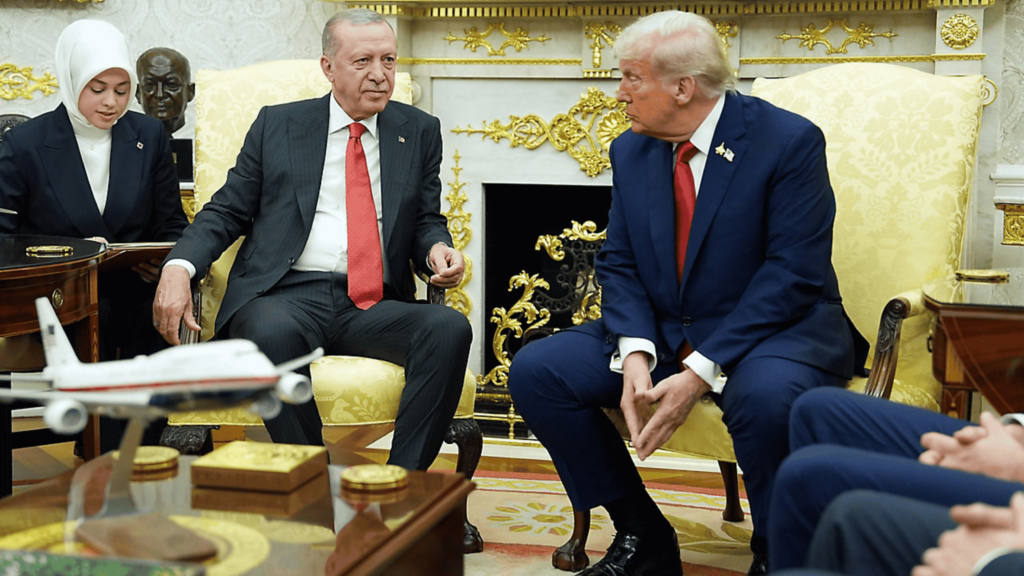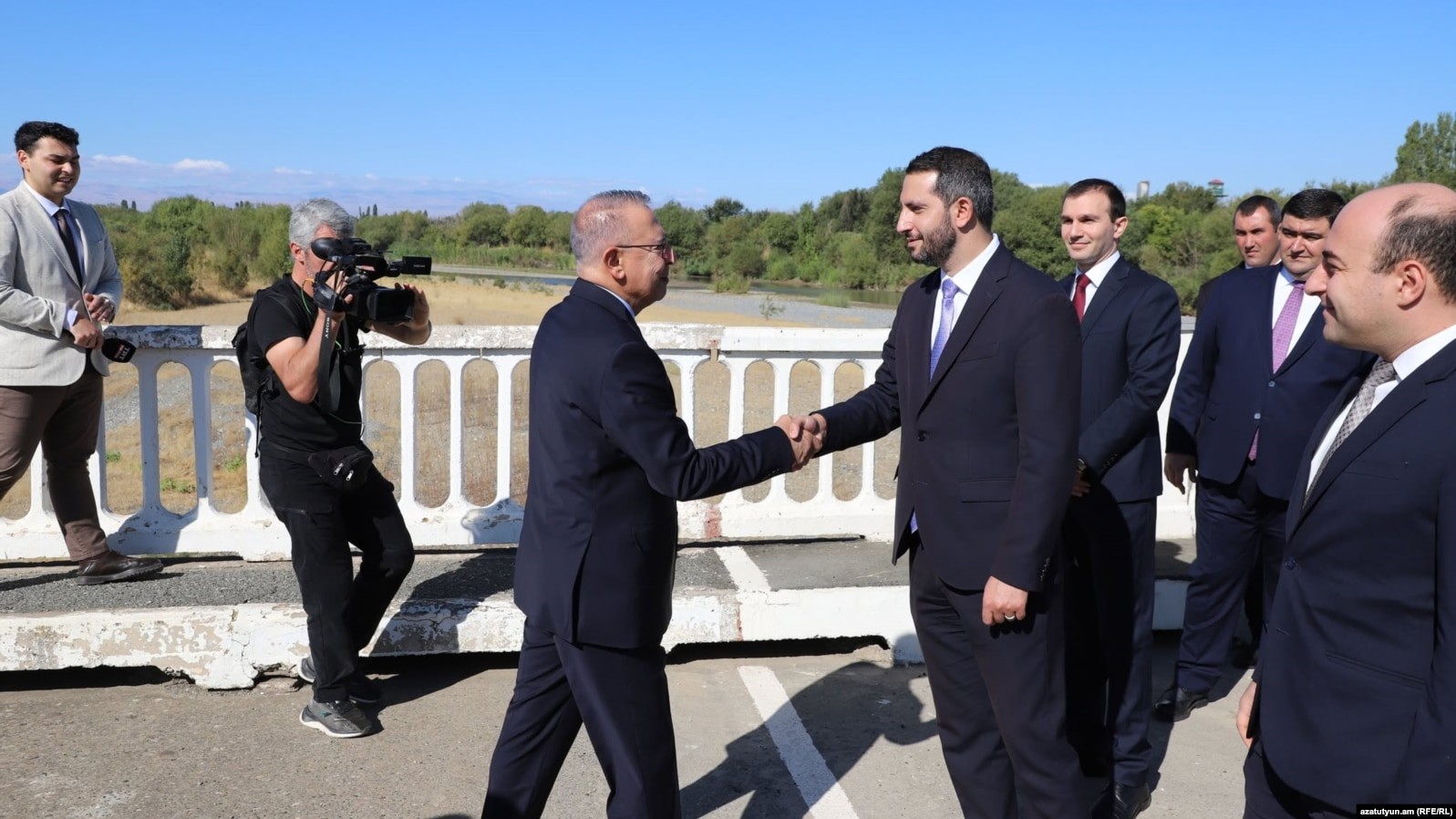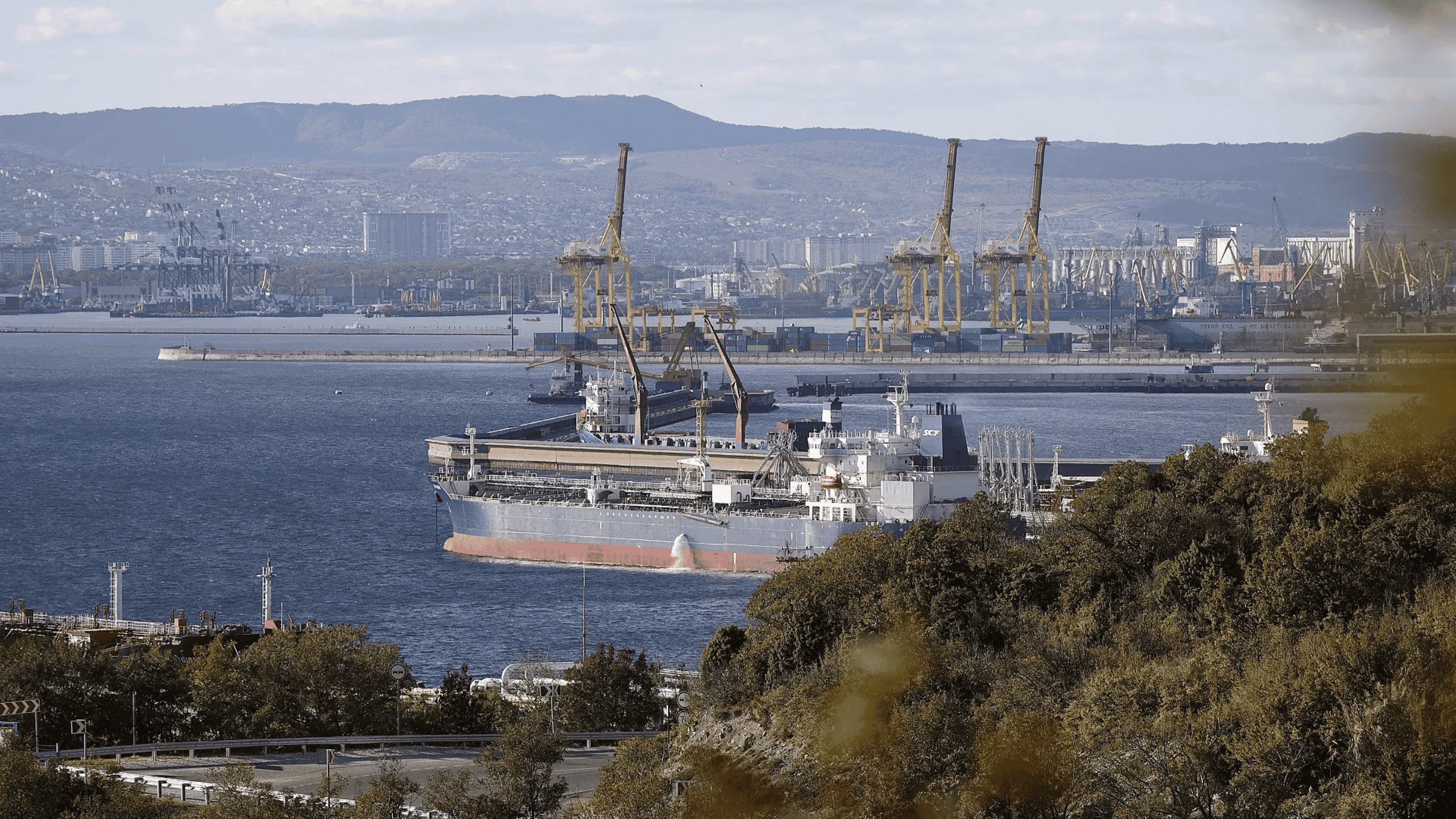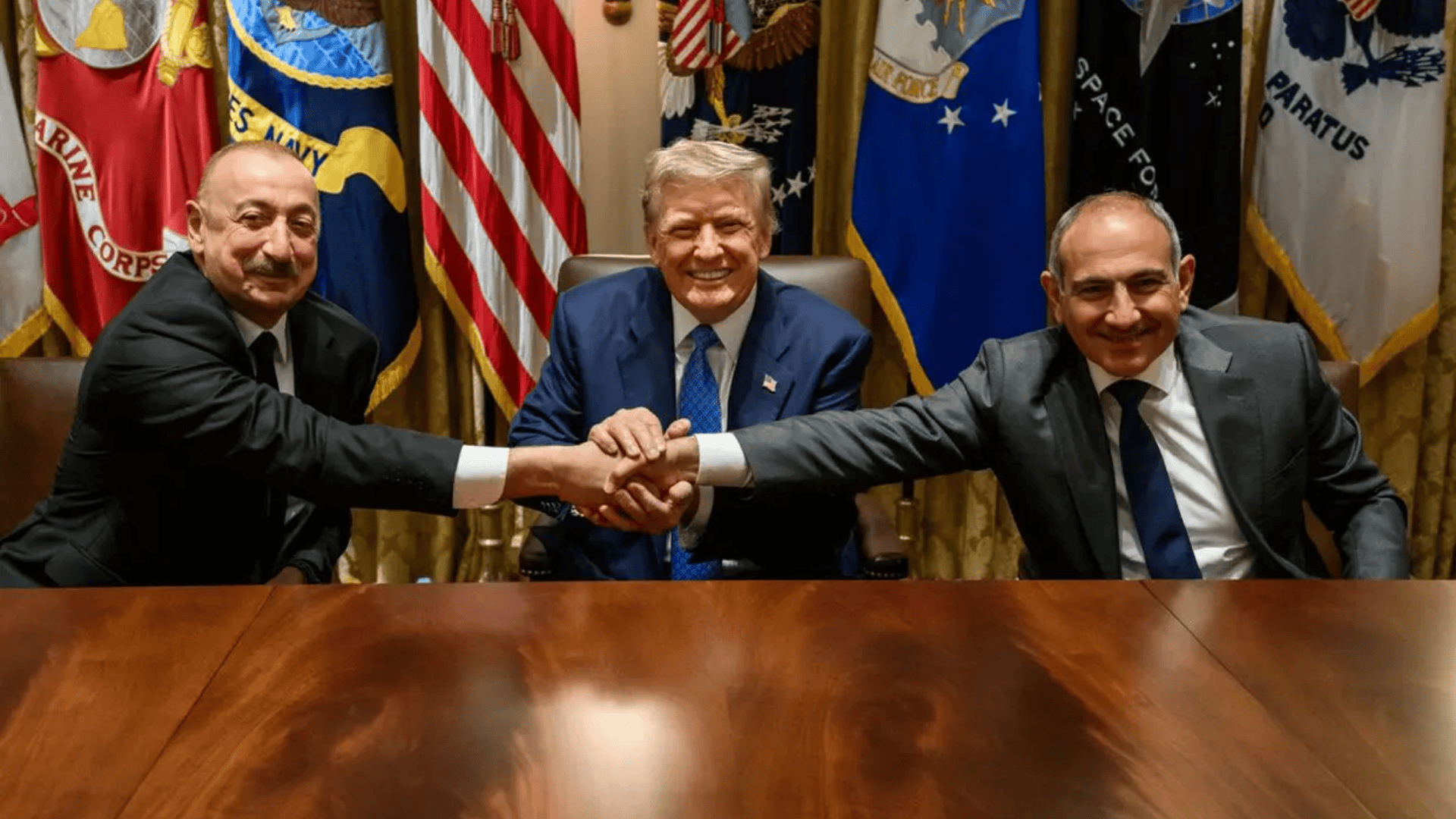Opinion: US is strengthening Erdogan’s position — what are Trump’s aims regarding Turkey?
US gives Erdogan legitimacy
In September, Donald Trump met with Turkish President Recep Tayyip Erdogan at the White House, signalling a potential normalization of relations between the two countries.
US Ambassador to Turkey Tom Barrack said: “Trump said, ‘Let’s take a bold step and give Erdogan what he needs,’ and what he ‘needs’ is not weapons or trade, but ‘legitimacy.’”

Normalization of relations, F-35 fighters and Boeing planes
This move by the Trump administration was driven both by personal relations — with both leaders cultivating images of strong statesmanship — and by strategic considerations. At this stage, the US faces several key objectives.
Washington aims to pull Turkey away from Russia in the energy sector.
To this end, the US is trying to steer Ankara toward buying liquefied natural gas from America instead of cheaper Russian gas.
For Turkey, this will be more expensive.
But the US aim is to reduce Russia’s gas revenues and secure Turkey’s support in its Black Sea strategy on Ukraine.
For this reason, the two sides are discussing defence and trade agreements important to Turkey, with the underlying message being:
In 2019, Turkey was “punished” by the US for purchasing Russia’s S-400 air defence system: it was excluded from the F-35 fighter programme and hit with CAATSA sanctions. The Trump administration now says it is willing to ease these restrictions.
- The US has indicated it is ready to reconsider selling F-35s to Turkey and could “almost immediately” lift CAATSA sanctions.
- In addition, major deals are being discussed on Boeing passenger planes, F-16 fighters, and even nuclear energy projects.
As Trump put it, Erdogan wants military and economic agreements “on his terms,” and the US is now inclined to agree.
Regional stability and Turkey’s role as a mediator
In this regard, the US sees Turkey as a useful player.
For Washington, it is important that Ankara is one of the few countries able to engage in dialogue with both Moscow and the West.
- In Syria, Turkey’s border security interests and links with armed groups give it leverage over developments. The US believes Ankara can play a balancing role here.
- In Ukraine, Erdogan can negotiate with both Putin and Western leaders, reinforcing his role as a mediator. This is also important for security in the Black Sea.
- In Gaza, in September this year, Erdogan met both Putin and Trump to discuss ending the conflict. This is seen as evidence of Turkey’s ability to work simultaneously with regional states and the US.
For the US, Turkey serves as a “negotiation channel” in Syria, Ukraine, and the Middle East. This strengthens Erdoğan’s international standing and allows him to position himself as a “regional leader.”
Trade and energy cooperation
These areas occupy an important place in US–Turkey relations.
- Gas agreement: under the contract, Turkey will buy 70 billion cubic metres of liquefied natural gas (LNG) from the US over 20 years. For the US, this means increased sales of gas and weapons; for Turkey, it provides energy diversification.
- Nuclear energy: the US is offering Turkey small modular reactors to reduce its reliance on Russia’s Akkuyu nuclear plant. Washington’s goal is to steer Turkey away from Russian technology and promote its own nuclear solutions.
- Strategic significance: these moves offer the US not only economic benefits but also geopolitical advantage. For Turkey, it is a way to reduce dependence on Russia and strengthen ties with the West, though the country will face higher energy costs.
Winning favour and personal relations
This factor also plays a special role in US–Turkey relations.
- Trump’s approach: He regularly praises Erdogan publicly. In 2024, he called Erdogan’s military successes in Syria “the fulfilment of a two-thousand-year goal” and congratulated him.
- Personal friendship: Trump has openly said he already considers Erdogan a “friend.” This personal relationship affects diplomatic negotiations, with the US showing more trust in Turkey and making concessions.
- Benefit for Ankara: Internationally, this gives Turkey extra diplomatic leverage; domestically, Erdogan presents it as “successful negotiations in the nation’s interest,” strengthening his own legitimacy.
Possible outcomes of the policy
This policy could lead to a range of both short-term and long-term outcomes.
Short-term outcomes:
Discussions between Trump and Erdogan on a Gaza peace plan allowed Ankara to present itself as an “active diplomat and key player in promoting regional peace.”
- The F-35 crisis had long strained US–Turkey relations. The Trump administration is now signalling a possible resolution. If Turkey agrees to give up Russian S-400 systems, it could regain access to F-35 fighters.
- The confirmed 20-year, $43bn gas deal, along with major contracts for Boeing planes and F-16 fighters, means increased US sales of gas and arms, while Turkey gains energy diversification, albeit at higher costs.
- Media coverage of the meeting also boosted Erdogan’s image. Trump’s comments calling him a “leader achieving a two-thousand-year goal in Syria” were presented by pro-government Turkish media as a “strategic victory.”
- Discussions between Trump and Erdogan on a Gaza peace plan allowed Ankara to present itself as an “active diplomat and key player in promoting regional peace.”
Long-term outcomes: authoritarian rule takes a back seat
Support from external powers strengthens Erdogan’s authority and boosts his standing both at home and abroad, reinforcing the internal narrative that “we are at the table with the world’s powers.”
At the same time, this allows authoritarian governance and domestic repression to be pushed into the background.
This approach has provoked mixed reactions in Turkish society and the West. In the US, some Democrats see the Trump–Erdogan meetings as a compromise of democratic values, while Congress has increasingly raised concerns over human rights violations.
Trump’s joke during the meeting, in which he said Erdogan “is the best at rigging elections,” sparked strong criticism in the American media and among democracy advocates.
In the long term, economic commitments also carry risks. Large US contracts for LNG force Turkey to shift to more expensive energy sources, potentially increasing pressure on the national budget.
If Washington imposes stricter conditions in the future, this could strain Ankara’s relations with Moscow and create new regional imbalances.
Repression against the opposition in Turkey
Domestically, Erdogan builds his legitimacy mainly on the centralized presidential system in place since 2018 and election results.
However, the growing opposition is gradually undermining these foundations.
Many observers say the authorities are responding by using pro-government media and judicial mechanisms to weaken opposition leaders.
Recent examples include the arrest of Istanbul mayor Ekrem İmamoğlu and restrictions on the opposition Republican People’s Party (CHP), which nominated him for the 2028 presidential elections.
Arrest of İmamoğlu and pressure on the CHP
Erdogan’s main rival, Istanbul mayor Ekrem İmamoğlu, was arrested in March this year on charges of corruption and alleged ties to the Kurdistan Workers’ Party (PKK), listed as a terrorist organisation not only in Turkey, but also in the US, EU and UK.
The arrest not only put İmamoğlu’s political career at risk but also raised serious concerns about the state of democratic institutions in Turkey.
At the same time, cases were opened against hundreds of CHP members and dozens of municipal officials. Twelve elected mayors, including those victorious in Istanbul, faced arrests or other restrictive measures. Experts see this as part of a long-standing “lawfare” strategy — using legal tools as a political weapon in Turkey.
The opposition called İmamoğlu’s arrest a “political coup” and organised mass protests. International observers also described it as one of the clearest examples of democratic backsliding in the country.
İmamoğlu’s arrest thus marked a critical moment, further deepening the crisis of Erdogan’s legitimacy both domestically and internationally.
New legislation and reports of torture have also sparked widespread public discontent.
According to a Brookings study, İmamoğlu secured the support of around 15 million voters, giving him “symbolic power” and fuelling ongoing protests across the country.
Overall, Turkey is facing a crisis of legitimacy.
Erdogan presents himself as a “defender of the national will,” but a deep gap has emerged between his claims to authority and the political reality.
Abroad, Erdogan has in recent years sought to strengthen his position through high-level meetings and mediation initiatives. Trump has openly described him as one of the few leaders respected by both Putin and Zelensky. Such international recognition boosts Ankara’s diplomatic weight.
However, experts warn that external legitimacy cannot mask domestic problems.
Montana Institute expert Soli Özel notes that Trump’s open support makes Erdogan vulnerable to opposition claims that he “acts at Washington’s behest.”
Ultimately, Erdogan aims to turn international recognition into a political advantage at home, but internal tensions continue to challenge his authority.
Strengthening Erdogan’s “legitimacy”: expert views and diplomatic statements in Turkey and the US
Diplomatic circles and experts offer different interpretations of US support for Erdogan’s “legitimacy.”
Turkish analysts say the words of US ambassador Tom Barrack — “Trump said: ‘Let’s take a bold step, give Erdoğan what he needs,’ and that ‘need’ is not weapons or trade, but ‘legitimacy’” — show that Erdoğan is effectively seeking political recognition and backing abroad. Opposition figures interpret this as confirmation that his domestic authority relies heavily on foreign support.
US officials, however, offer a different explanation. They stress that the “legitimacy” mentioned by Barrack is not about internal politics but reflects a strategic rethinking of US–Turkey relations. Their main goal, they say, is to pull Ankara away from Russian influence, reduce its energy dependence, and restore its status as a reliable NATO partner.
Some observers warn, however, that Western backing may undermine international norms and democratic principles in Turkey. Others argue it could deepen internal divisions, as Turkish citizens increasingly prioritise the image of a strong leader over European integration or democratic institutions.
Something similar happened, for example, in Georgia.
Some analysts note that the policy reflects the current priorities of the Trump administration and that once its strategic goals are met, the US could return to a “values-based” approach.























